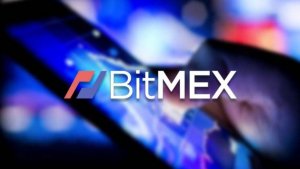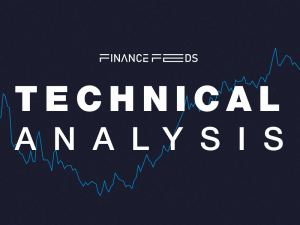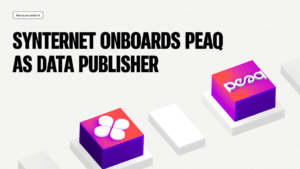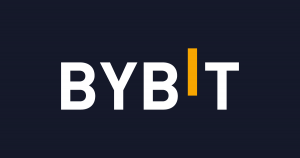Are you brave enough? New opportunity for FX brokers as Iran does payment deal with UK, Germany and France
Iran has been on the radar of many FX firms for several years. It has a large population, an astute potential client base but has been hampered by sanctions which has made it impossible to take deposits or pay withdrawals. Now, with a new agreement, that is set to change opening up a whole new market

The Islamic Republic of Iran has been in formal existence since the famous revolution in 1979, signaling the end of the liberal and affluent former nation of Persia, and ushering in a totalitarian and isolationist regime which has led to international sanctions on travel and business.
The world’s 18th most populous nation, Iran is home to a large number of highly educated and ambitious people, with 41% of its 81 million population under the age of 35 – put simply, an ideal potential customer base for retail FX firms from good quality regions.
A lack of sustainable employment opportunities, stringent government control over individual capital resources, and a sanctions-imposed inability to transfer money to and from companies and banks in other nations combined with a high level of ambition and a well educated populace has created an environment in which many Iranians look for methods by which they can create their own wealth rather than rely on the regime they either fear or do not trust.
FinanceFeeds is aware that for several years, many retail firms have looked toward conducting business in Iran, but any attempts have been thwarted by the inability for customers to transfer money to a FX firm in pretty much any region outside Iran, and just as importantly the inability for FX firms to transfer withdrawals to customers in Iran, as the merchant services providers (Visa, Mastercard) and the major referral banks are duty bound to uphold the sanctions and prevent any transfers.
As of today, that is set to change as some diplomacy has begun to take shape between Iran and three important financial markets centers in the West, those being Britain, France and Germany to facilitate a payment channel between the Islamic Republic and the three major Western economies.
The new payments system has been created in order to allow European businesses in any industry sector to trade with Iran on a private and commercial basis without falling foul of US sanctions, as all three nations opposed last year’s decision by President Donald Trump to abandon a 2015 deal under which international sanctions on Iran were lifted.
The trade santions that have prevented many businesses and individuals to make bank transfers or credit card payments to & from Iran were instigated by the United States many years ago, and have been adhered to by the majority of Western merchant services providers and banks, hence the difficulties in European FX brokerages being able to do business with Iranian customers.
By creating a new payment channel, based in Paris, and managed by a German banker, the UK, France and Germany hope to enable companies to continue to trade with Iran, bypassing the sanctionable activity caused by having payment channels and corresponding banks in the US.
The UK Foreign Office said the Instrument for Supporting Trade Exchanges (INSTEX), was a “new mechanism for facilitating legitimate trade between European entities and Iran”. British Foreign Secretary Jeremy Hunt said initially the new payment system would only apply to food, pharmaceuticals and retail consumer products, which are not subject to sanctions.
Oil, Iran’s main source of foreign exchange, will not be covered, however spot FX and CFDs will be totally accessible by Iranian customers when provided by British, French or German firms. Given that London’s Tier 1 banks which provide 45% of the entire world’s FX order flow are British, French and German in origin, a trade deal like this that allows Iran to access payment channels and its customers trade with British CFD firms and have the order flow conducted by British, French and German (for example Barclays, Soc Gen and Deutsche Bank) in London’s Canary Wharf, may well signal a new economic empowerment in Iran and a massive boost for the UK electronic trading business.
Iran is currently completely untapped by Western brokerages and therefore Iranian FX traders have been hampered by limited choice, only being able to operate with less than reputable Middle Eastern firms with no liquidity arrangement, and placing client funds in third tier Middle Eastern banks which has often proven to be a serious means of risking personal capital with absolutely no recourse if something goes wrong or if the broker is less than scrupulous.
(I am aware of a case 10 years ago in which an employee of a Middle Eastern brokerage, employing Parsi-speaking Israelis, managed to extort over $50 million in client funds from the brokerage by conversing with customers in Iran by telephone in Parsi, a language not understood by the brokerage owners, stating that the firm had moved its bank accounts to Jordan and that they should deposit there – when actually the accounts were owned by the employee who then ran off with the clients, and the brokerage’s money – Ed).
In a statement, the US Embassy in Berlin said: “As the President has made clear, entities that continue to engage in sanctionable activity involving Iran risk severe consequences that could include losing access to the US financial system and the ability to do business with the United States or US companies.”
However, it added it did not expect the new payments system would “in any way impact our maximum economic pressure campaign” against Iran.
On Thursday Mr Hunt said INSTEX was “part of European efforts to preserve and support the Iran nuclear deal” and “preserve sanctions relief for the people of Iran”.
“This is a clear, practical demonstration that we remain firmly committed to the historic 2015 nuclear deal struck with Iran, the Joint Comprehensive Plan of Action, for as long as Iran keeps implementing it fully,” he added.
He said more work needed to be done to get the system up and running: “That includes work with Iran to establish the necessary counterpart structures.”
It is very likely that good quality firms in Europe will wish to serve Iranian customers and that Iranian customers will be glad of the ability to trade with well regulated firms with a long history and good quality secure banking.
Diplomacy in business is therefore a good thing.









